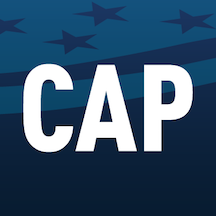 A new report from the Center for American Progress finds a large racial disparity in outcomes for Black and White students who took out federal loans for their college education. The study examined students who entered college in the 2003-04 academic year and who borrowed money to finance their higher education. The analysis examined that status of their loans 12 years later.
A new report from the Center for American Progress finds a large racial disparity in outcomes for Black and White students who took out federal loans for their college education. The study examined students who entered college in the 2003-04 academic year and who borrowed money to finance their higher education. The analysis examined that status of their loans 12 years later.
Remarkably, the analysis found that African American students owed 114 percent of their original loan amount 12 years after entering college.
Nearly one half of all African American students who entered college in the 2003-04 academic year and took out federal loans had defaulted on their payments over the next dozen years. Only 21 percent of Whites who borrowed federal money for college had defaulted on their loans. For those that earned a bachelor’s degree, 21 percent of African Americans defaulted on their loans, compared to 6 percent of Whites who earned a bachelor’s degree.
For those students who borrowed money and then dropped out of college without earning a degree, 64 percent of Blacks who entered public four-year colleges defaulted on their loans, compared to 39 percent of Whites who borrowed money and did not earn a degree. For Black students who entered for-profit institutions of higher education, borrowed federal money, and did not complete their programs, 75 percent defaulted on their student loans.
The full report, “New Federal Data Show a Student Loan Crisis for African American Borrowers,” may be viewed here.













I keep writing that most black people have no business in college. There are so few blacks who are truly prepared academically and financially to be successful in college that only the ones chosen for full-scholarships should bother attending. Nothing sets blacks back like the seeking out of higher education. When white teachers advised black students that a vocational track of education was better for them than the 4 year liberal arts education, they were right. What seeking out college gets the majority of blacks is student loan debt and bad credit, without a college degree to show for their efforts. College is for the academic elite blacks, others should not apply.
David,
Your comment is both negative and true at the same time. You are right higher education is keeping blacks poor, especially those who don’t finish. If a black student, is not academically strong by junior year of high school, then I would not advise them in going to college.
However, we want to encourage blacks to pursue higher education, but also give them other optional career paths. Example, for both trade and college, Blacks should learn how to research careers to see the salary potential, if it is in demand, job growth, and the prerequisite steps. Furthermore, if they choose the college route, blacks should learn how to make a wise decision on the type of major they pursue, finding available scholarships, work study programs, and outside grants.
College debt is a serious issue that will likely be one of the many other problems we have to face in the black community.
Replace “black” with “everyone” in these comments and I’m with you.
If we replace black with everyone nothing will change. We have been pretending blacks are equal to whites for long enough. It has not been good for blacks or whites to live this lie of equality.